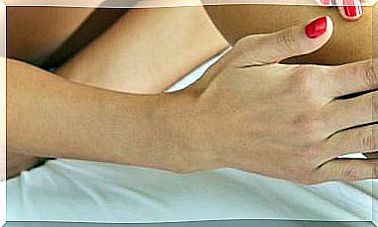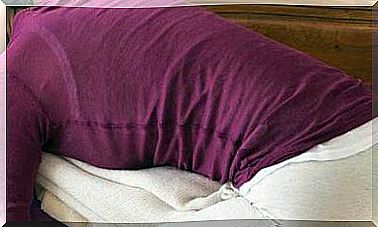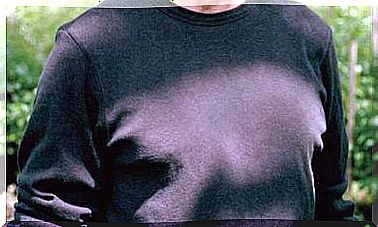10 Tips To Lose Weight Wisely
Every year new diets appear that promise quick and effortless results, but it is good to know what the big mistakes are when trying.

Today, the body model considered ideal continues to have slenderness and thinness as background music .
Many people, particularly women, believe that they are too heavy and appear “fat” when their weight is normal and healthy, with a body mass index between 20 and 25.
Others would like, even while remaining at normal weight, to lose a few “pounds” without health reasons to justify it.
This permanent discontent fuels stress and magical thinking, which encourage the appearance of crazy proposals about weight and ways to reduce it.
The first thing to ask yourself is: do I really need to lose weight? A sincere and objective answer solves many doubts and problems in itself.
If you decide that you finally have to lose weight, the question is how to do it efficiently and safely.
Behind being overweight there is a positive energy balance, a calorie intake greater than its expenditure. The surplus ends up turning into fat that accumulates in the body.
The essential objective is to invert this balance, so that the contributions are less than the needs, in the hope that the difference will be made up by the energy reserves themselves.
The physical exercise and calorie reduction remain the cornerstones. But they must rest on solid principles, gaining health in the attempt.
The key to losing weight: finding balance
The diet must provide the necessary nutrients without losing essential elements such as water or muscle mass, and maintain weight loss over time.
Among the hundreds of existing weight loss diets, the most frequent errors are :
- No or insufficient supply of carbohydrates.
- Absence of a minimum of fat necessary.
- Protein excess .
- Forgetting the raw.
- Inclusion of non-basic foods.
- Extremely low caloric intake, below 1,200 calories per day.
- Total break with eating habits, starving, and monotony.
The alternative is a hypocaloric diet that reduces energy intake in a reasonable and adapted way, respecting the other nutritional balances and all those requirements that a diet must meet.
Can you lose weight without starving?
This should be one of the goals of a hypocaloric diet.
Controlling the rhythm of what is ingested, individualizing the diet and having other food options at specific times are the keys to achieving this.
On the other hand, you should not confuse starving with not being able to eat what you want at a certain time .
How many calories do you have to reduce?
The theory indicates that a restriction of 500 calories a day will result in a loss of half a kilo of weight a week.
However, the many factors involved in this process mean that there may be variations. Taking this data as a basis and doing an individual follow-up can be a good strategy.
Should you eat five times a day?
As long as it does not involve ingesting more calories, it seems that it does: the digestion and absorption mechanism is activated more times, which implies greater energy expenditure.
In addition, this way you do not go hungry, you do not eat such large amounts (which dilates the stomach), and the relationship with food is less anxious and more controlled.
Are you fattening to eat fruit for dessert?
Many different arguments have been put forward to justify this popular belief, but to date there is no evidence to prove it.
In fact, conventional low-calorie diets often include fruit for dessert. And, among the most common dessert proposals, it is one of the least caloric.
Why not skip breakfast?
When you want to lose weight, thinking only in terms of kilos and calories is a mistake. There are many other factors to consider, such as health and performance.
A proper breakfast is essential to regulate many physiological and psychological processes. Ditching it leads to far more losses than gains.
Does sweating help you burn fat?
Absolutely. Sweating is a defense mechanism that the body has to lower its internal temperature.
When you sweat, what you lose is water ; it is not fat that “melts”. All the weight that is lost through sweat must be replaced as soon as possible since the body could become dehydrated.
Is fasting effective to lose weight?
When it comes to losing weight, the most important thing is not so much the loss itself as maintaining it. And, by definition, fasting cannot be maintained over time.
Only as a shock measure in very rare and extreme cases, and always under medical supervision, can fasting make sense. But the difficult begins later.
Do Dissociated Diets Work?
Essentially, they propose not to combine foods with different nutritional principles (carbohydrates, fats and proteins).
In practice, this results in monotonous meals that lead to eating less. Difficult to follow and balance, and boring, they don’t seem like an optimal alternative.
How do you avoid the rebound effect?
The rebound effect is to regain the lost kilos with relative ease , or even more. Diets that facilitate this dysfunctional dynamic have been called “yo-yo diets.”
The best way to avoid the rebound effect is with a diet that helps you lose weight progressively, eat better and consolidate new habits.
Is there a novel and effective diet?
Behind slogans, characters, fashions and interests there are always unbalanced diets whose main difference is the way in which they move away from the proven recommendations.
Or diets that respond essentially to the canons of low-calorie diets but with small non-essential modifications to justify a name.









